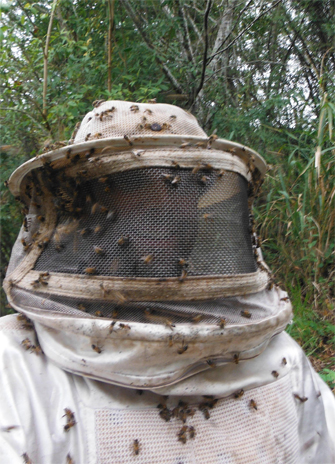
Biology Professor Amro Zayed in the Faculty of Science and his PhD student Brock Harpur have sequenced the genome of the highly invasive Africanized honeybee in collaboration with researchers from Brazil. Their data set is the largest genomic resource available for the Africanized honeybee and has been made publicly available for researchers around the world to use.
“Our study was the first step in understanding how a very invasive insect became so successful and the genetic basis of the unique traits of this bee,” says Harpur, who led the research with Samir Kadri, PhD student who visited the Zayed lab from UNESP in São Paulo, Brazil.

Africanized honeybees, which are often called “killer honeybees”are a hybrid strain of honeybees that was created by a genetic experiment gone wrong. In 1956, Apis mellifera scutellata was imported from Africa to breeding stations in Brazil, but escaped and hybridized with European honey bees in the region. The resulting hybrid Africanized honeybee became an incredibly successful biological invader. As of today, the bee has a range as far north as California. The species is extremely defensive and aggressive and has caused human fatalities. Its existence and range have caused immense economic damage to the honeybee industry.

The research team sequenced the genomes of 360 Africanized honeybees from 30 colonies, identifying more than three million mutations. The results were published in Scientific Data by the journal Nature.
With the genome sequenced and published, researchers can now explore the population dynamics, evolution and genetics of the Africanized honey bee. Scientists will soon be able to better understand the behaviours of the species and how it became so invasive.
This research will also benefit the beekeeping industry, where there is a growing need to quickly and reliably detect Africanized colonies in order to protect international trade in honeybees and ensure the sustainability of the beekeeping industry and agriculture that depends on bees for pollination.


